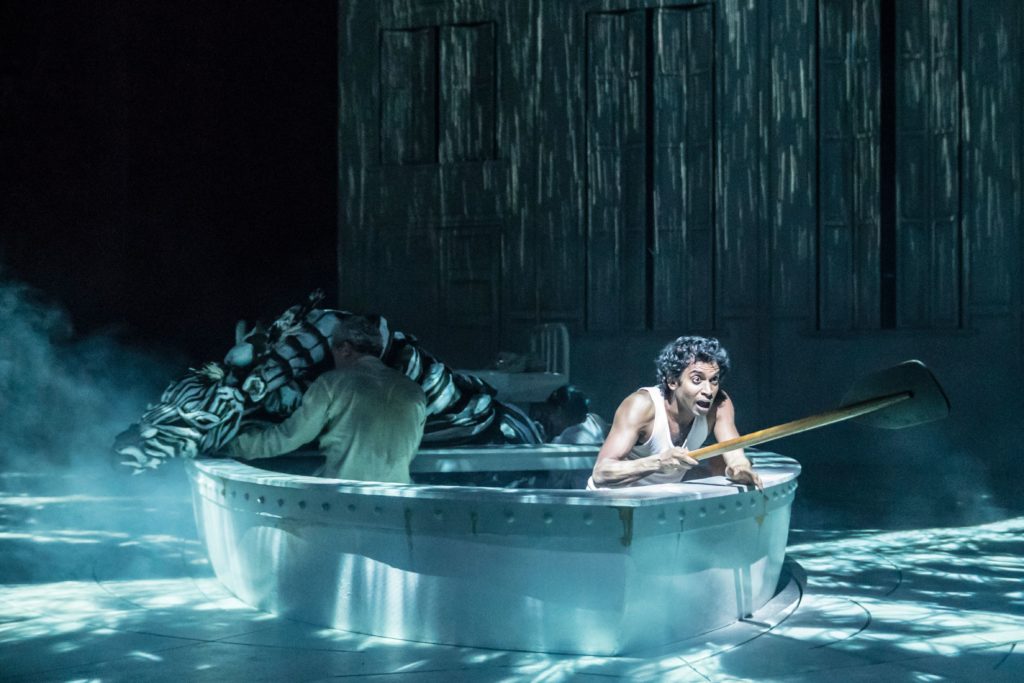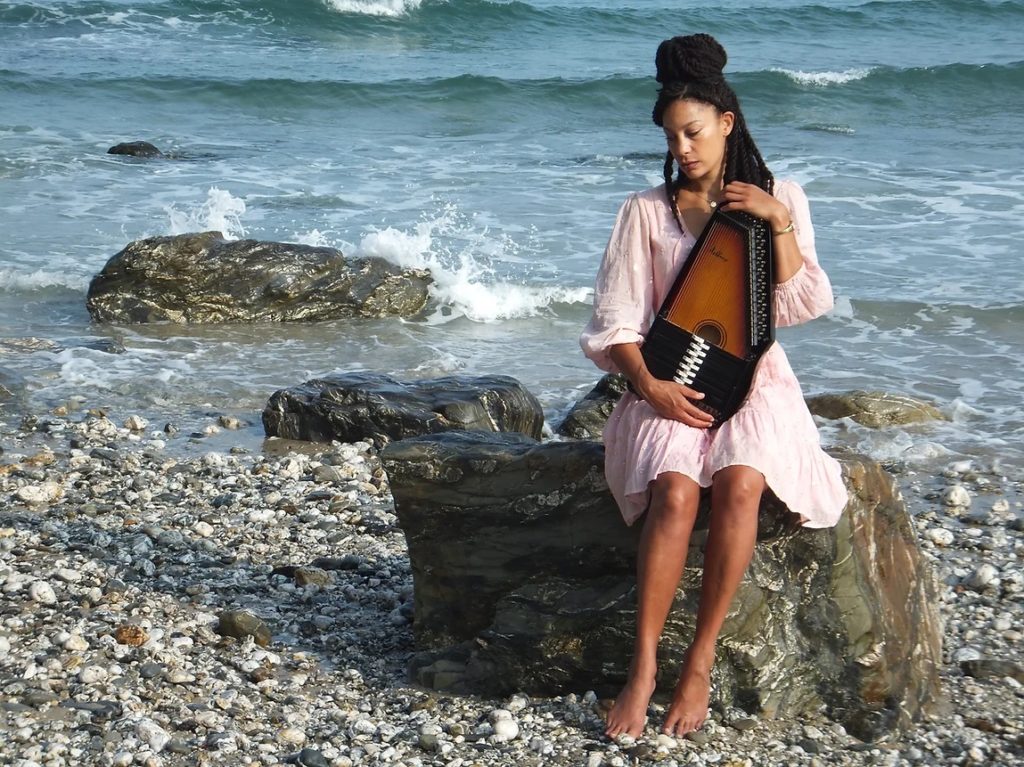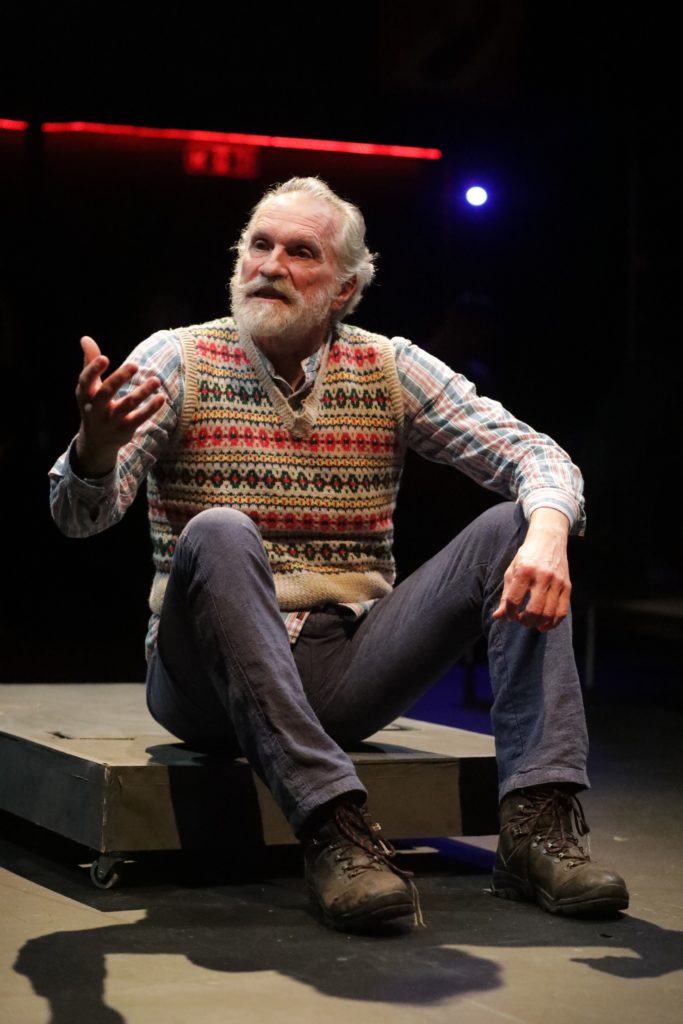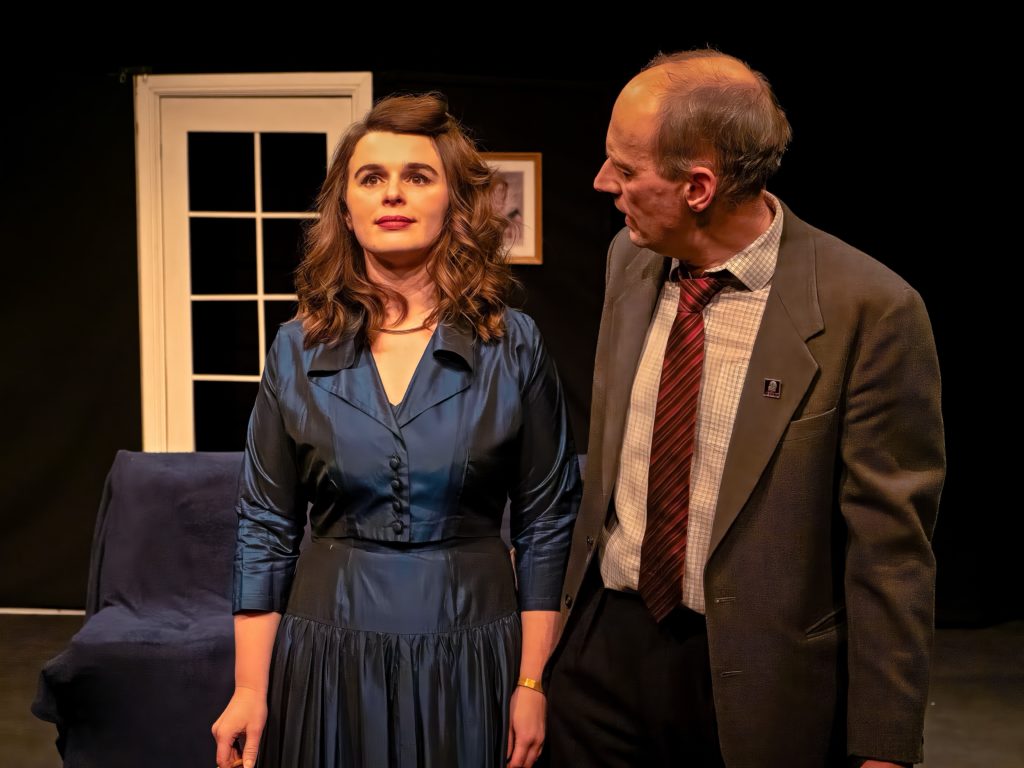
THE rise of John Osborne and the angry young men in the Royal Court revolution knocked Terence Rattigan into the hedgerow: a theatrical changing of the guard to rival punk rock shunting aside prog rock.
However, Sex Pistol Johnny Rotten, contrary to his I Hate Pink Floyd T-shirt, later admitted he loved Dark Side Of The Moon, although he did object to the Floydian pretentiousness.
For Rattigan, his elegant plays, full of typically English, uptight, concealed emotions and ambivalent eloquence, were suddenly deemed old-fashioned, all polish, no spit.
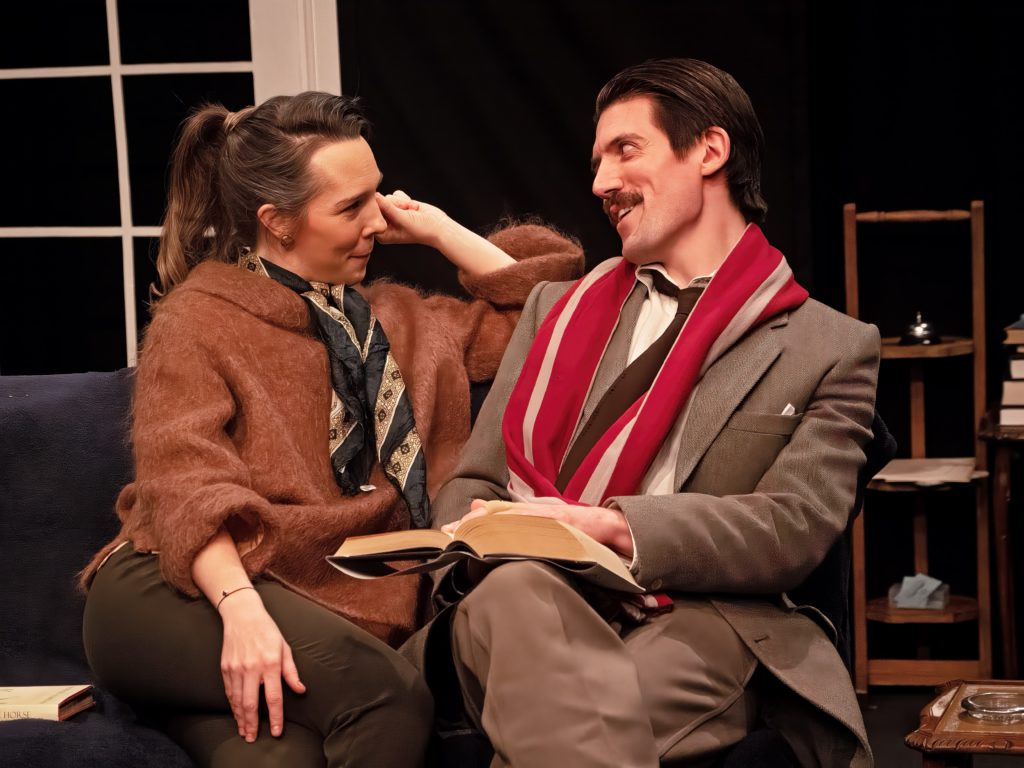
Rattigan’s resurrection has been gradual, accompanied by a renewed acknowledgement of his understanding of “our national psyche”. Ronald Harwood scripted Mike Figgis’s 1994 film adaptation of Rattigan’s 1948 play The Browning Version, with Albert Finney as a morose classics teacher, while Maxine Peake’s Hester Collyer in the West Yorkshire Playhouse production of Deep Blue Sea in 2011 made the headlines, but that was a rare Rattigan sighting for this reviewer.
Nevertheless, the Rattigan revival has been growing. Symbolically too, stonemasons completed the renovation of the rundown Rattigan family memorial at Kensal Green cemetery, west London, last year after the Terence Rattigan Memorial Fundraising Project raised £10, 507.
Good timing, then, for York Settlement Community Players stalwart Helen Wilson to pick Separate Tables as her first Settlement production since she completed her decade-long project to direct four Chekhov plays in 2020.
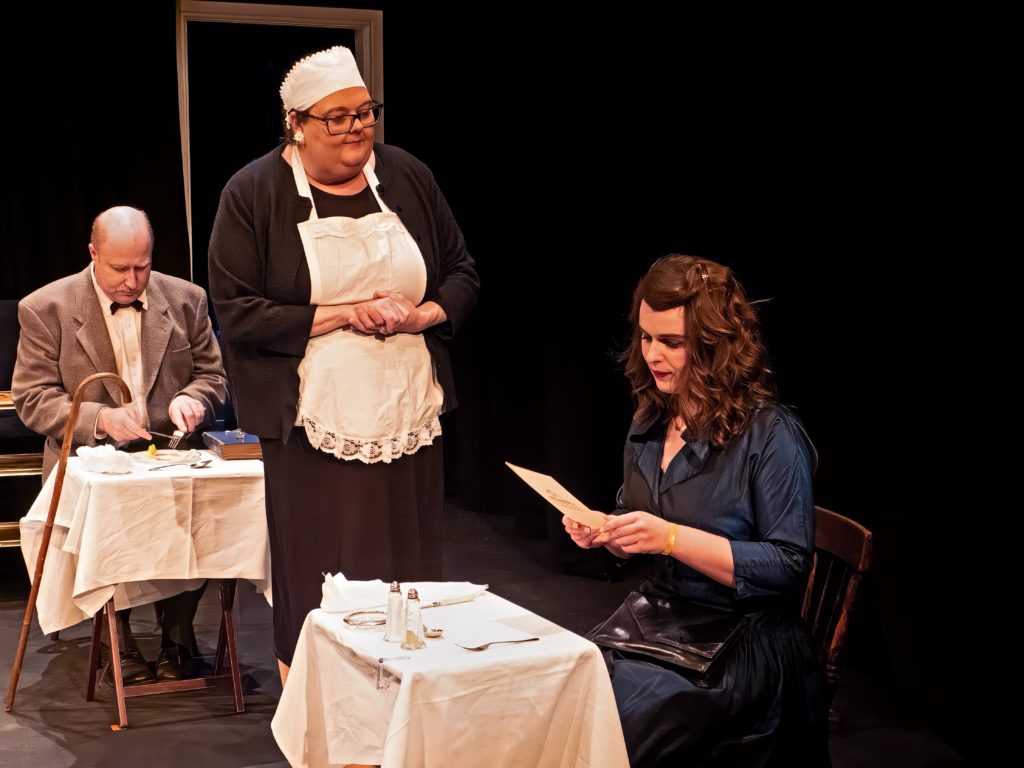
Wilson’s first decision was to eschew Rattigan’s original format of having the same male and female actors in the differing lead roles for both plays under the Separate Tables umbrella, the winter-set Table By The Window and the summertime Table Number Seven. Separate plays, separate lead actors, for Wilson.
Both halves are set in the mid-1950s in the shabby, genteel Beauregard Private Hotel in Bournemouth, where guests, both permanent and transient, sit on separate tables. Such stiff formality, so characteristic of Rattigan’s writing, emphasises their loneliness, all the more so for the diners sitting head on to Thursday’s full house in the compact Studio, adding a layer of breathless claustrophobia.
In her interview, Wilson made an astute comparison with the series regulars in Fawlty Towers, both staff and guests. Here we particularly enjoy the “light relief” and comic friction of Jodie Fletcher’s blunt waitress, Mabel, Marie-Louise Feeley’s brusque, horseracing form-studying Miss Meacham and Linda Fletcher’s fellow perma-guest, the ever-disapproving Lady Matheson.
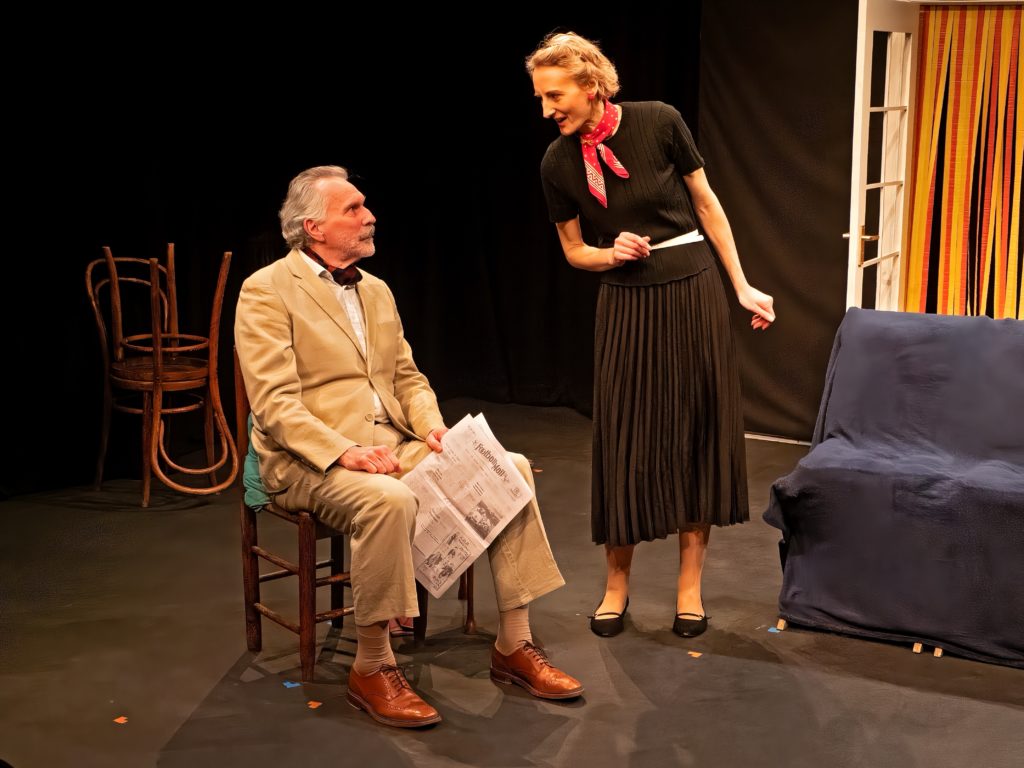
Catherine Edge, meanwhile, looks and sounds every period inch the essence of a south coast hotel manager throughout: her Miss Cooper is calm, composed, attentive, decisive, thoroughly decent, serene, always putting others first. Rattigan elegance, in a nutshell.
James Lee’s medical student Charles Stratton and Nicola Holliday’s Jean Tanner are Rattigan’s unguarded young couple, initially finding amusement in the old sticks and minor irritation in each other, before taking divergent positions in the second half.
Table By The Window is the less successful piece, never losing a sense of awkwardness in its lead performances or their behaviour. Chris Meadley, Tadcaster Theatre Company’s panto dame for the past three years, makes his Settlement debut as disgraced former Labour Junior Minister John Ramsden.
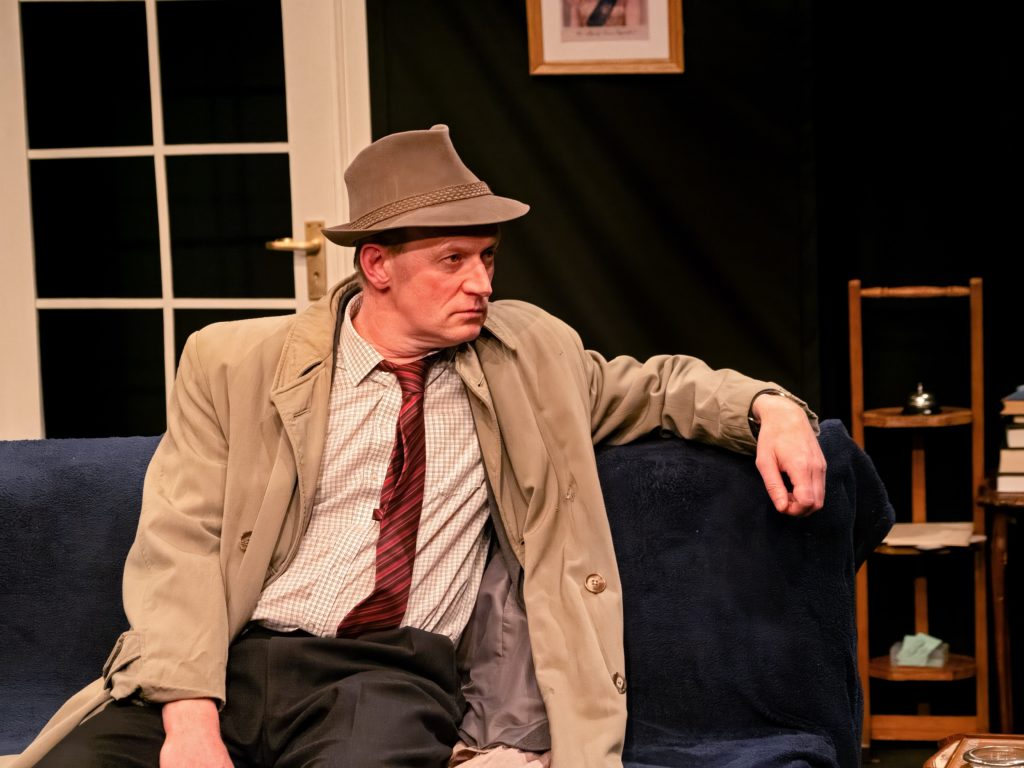
Now writing under the name Cato for the Socialist publication New Outlook, and staying at the Beauregard as John Malcolm, he looks at the world darkly through a haze of booze, surly and sarky, disputatious and dyspeptic.
Who should turn up – by chance, she protests – but ex-wife Mrs Shankland (Molly Kay), the woman he assaulted in his ministerial days. What ensues is an attritional psychological game, with shocks to come and sparks to fly, but everything feels uncomfortable, more collision than connection, with audience, subject and former partner alike.
By comparison, Table Number Seven is intriguing, compelling, surprising, radical even. Enter Paul French’s bogus Major Pollock, whose faux pas amusingly arouse the suspicions of Matt Simpson’s old academic stodge Mr Fowler.
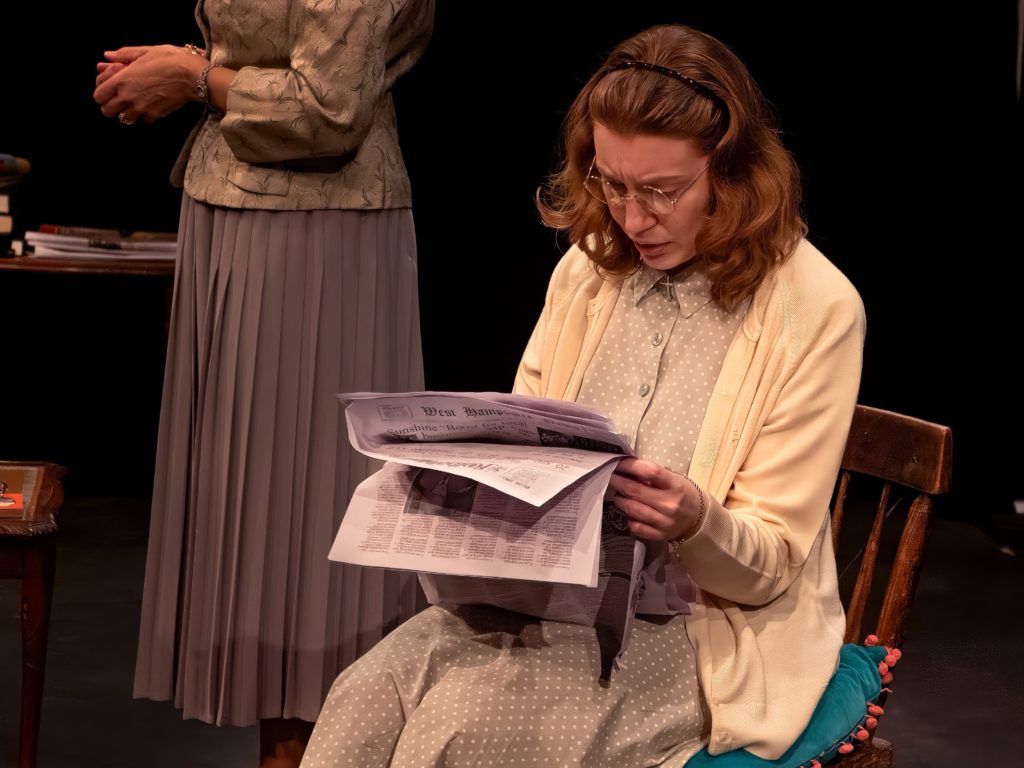
Edge, Lee, Holliday, Feeley and Fletcher times two keep doing their stuff, and Caroline Greenwood’s stultifying, insufferable, bigoted Mrs Railton-Bell keeps holding back her daughter, Jess Murray’s over-protected fledgling Sybil (or “Miss R-B”, as the Major calls her on their walks).
French and Murray’s scenes are terrific, capturing the repression and fear that grips the Major and Sybil alike. The local paper has been covering his court case for importuning, and here is where Rattigan confounds the naysayers, revealing himself to be liberal and progressive.
Performances: 7.45pm, February 13 to 17; 2pm, Saturday. Post-show discussion: February 16, 7.45pm performance. Box office: 01904 623568 or yorktheatreroyal.co.uk.


